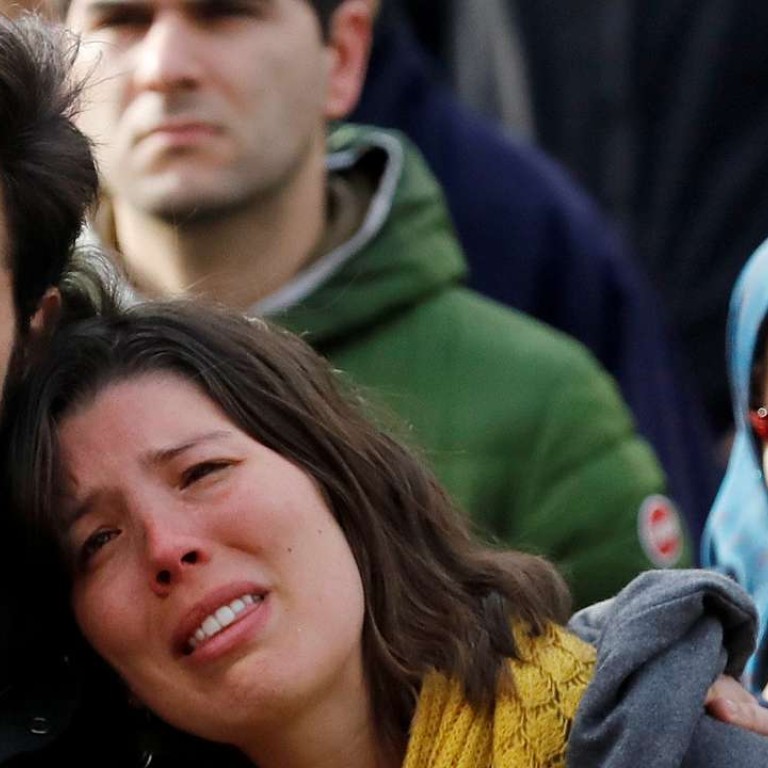
Belgians mark anniversary of deadly terror attacks with silence
Some 32 people were killed at the airport and metro station in Brussels
Belgium fell silent Wednesday to mark the first anniversary of the Islamic State suicide attacks in Brussels that killed 32 people, on a day of emotional ceremonies aimed at showing the heart of Europe is still beating.
A sombre King Philippe and Queen Mathilde, along with Prime Minister Charles Michel, led ceremonies at Zavantem airport and Maalbeek metro station to commemorate the victims at the exact moments the bombers struck.
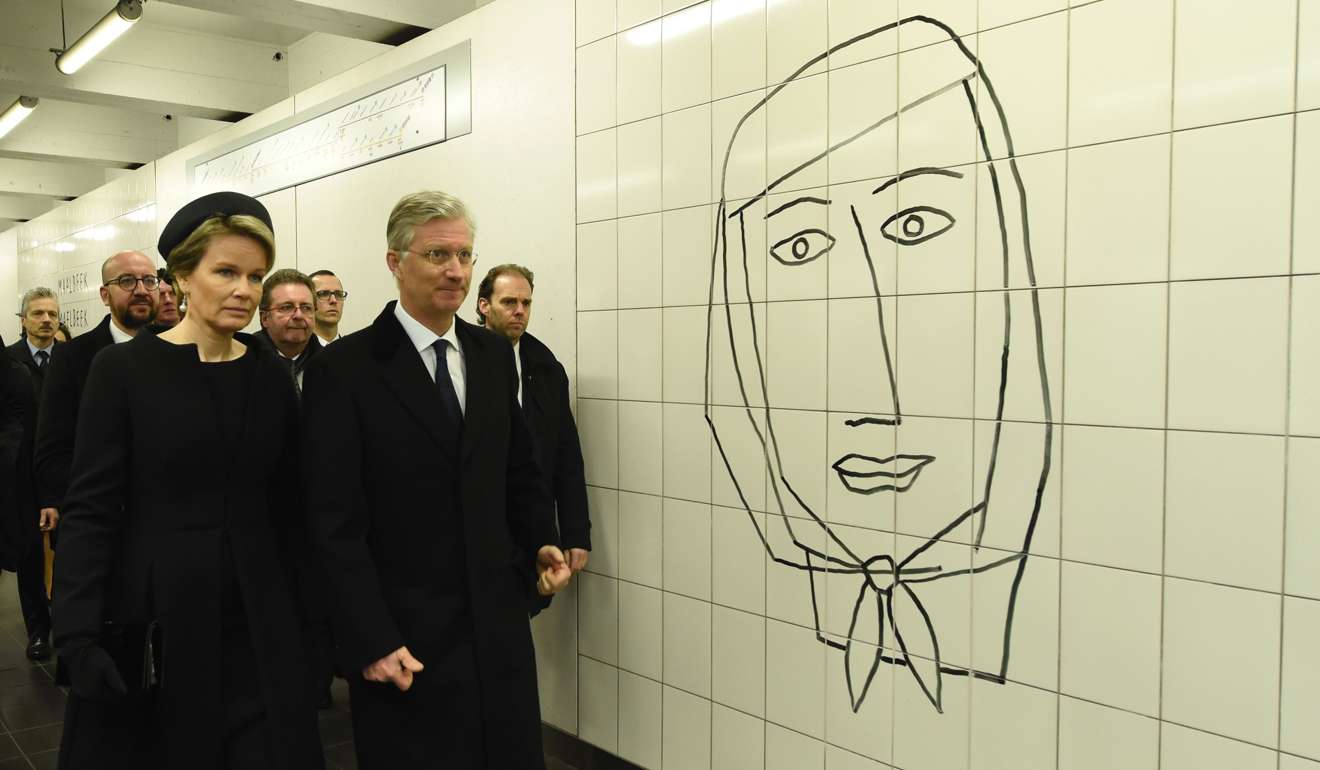
But the uncertainty Europe still faces one year on was underscored when British police shot a suspected attacker outside parliament who stabbed an officer shortly after witnesses saw a car ramming pedestrians on Westminster Bridge.
One woman was killed and a number of others were wounded, with police confirming they were treating it as a terror incident.
King Philippe said Belgium had stayed united after the attacks on March 22, 2016, and told families of the victims they had responded to the “deadly madness” of the attacks with “dignity”.
Watched by relatives and survivors, the royals also unveiled a new stainless steel memorial near the European Union’s headquarters to the dead and the more than 320 wounded in Belgium’s worst ever peacetime attacks.
“It is the responsibility of each and every one of us to make our society more humane and more just,” King Philippe said at the memorial. “And above all, let us dare to be tender.”
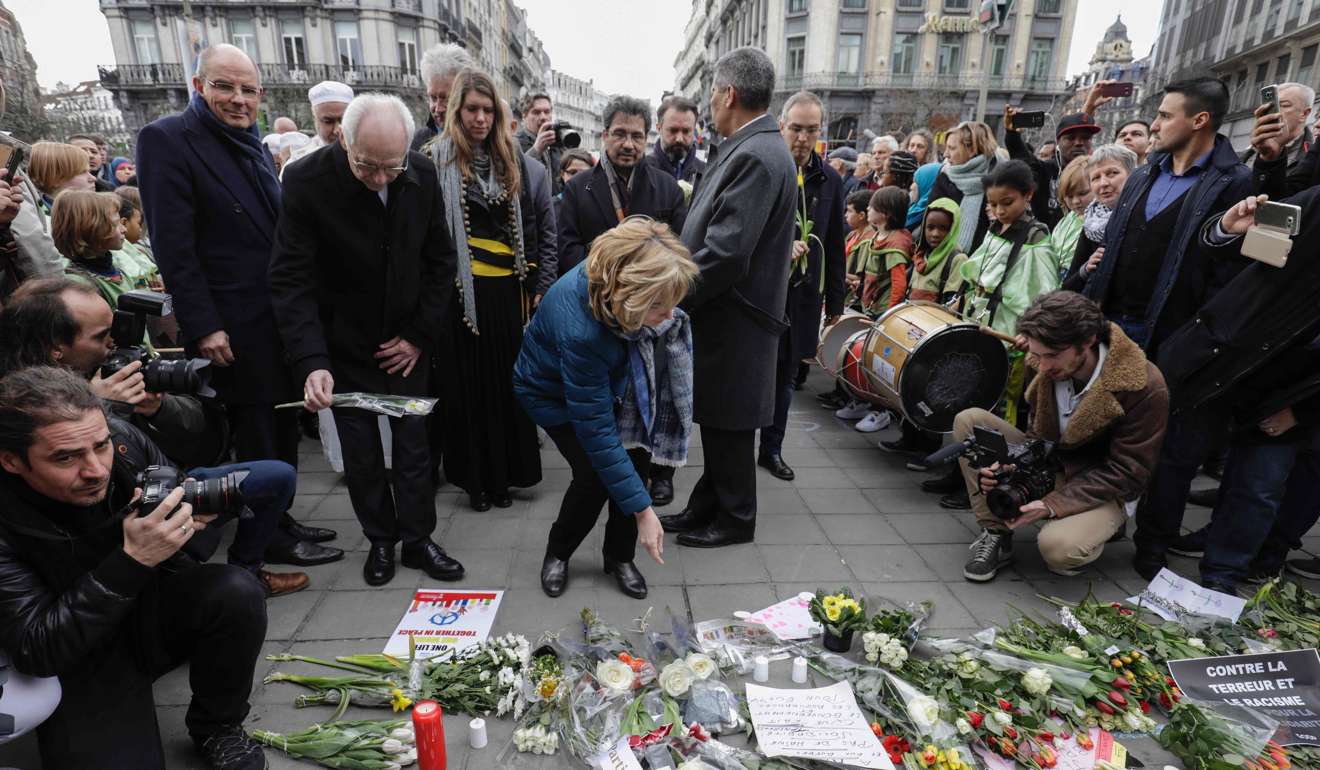
In an act of defiance and solidarity, trams and buses ground to a halt across the Belgian capital and commuters and public transport workers applauded during a “minute of noise”.
A year on from the attacks led by an Islamic State cell that was also responsible for the carnage in Paris in November 2015, Belgium remains on high alert with troops patrolling the streets and warnings of fresh risks.
But relatives of the victims called for solidarity.
“I would like to speak for all those affected by the blind violence from up close and afar. The 22nd of March is also my birthday -- nothing to celebrate, and yet love triumphs,” Kristin Verellen, whose 58-year-old partner Johan died in the metro attack, told the crowd at Maalbeek.
The prime minister said Belgium, which faced accusations of being a “failed state” for not stopping the terror cell despite several chances, stood strong one year on.
“Today we remember the victims of the attacks. We all remain united,” Michel tweeted.
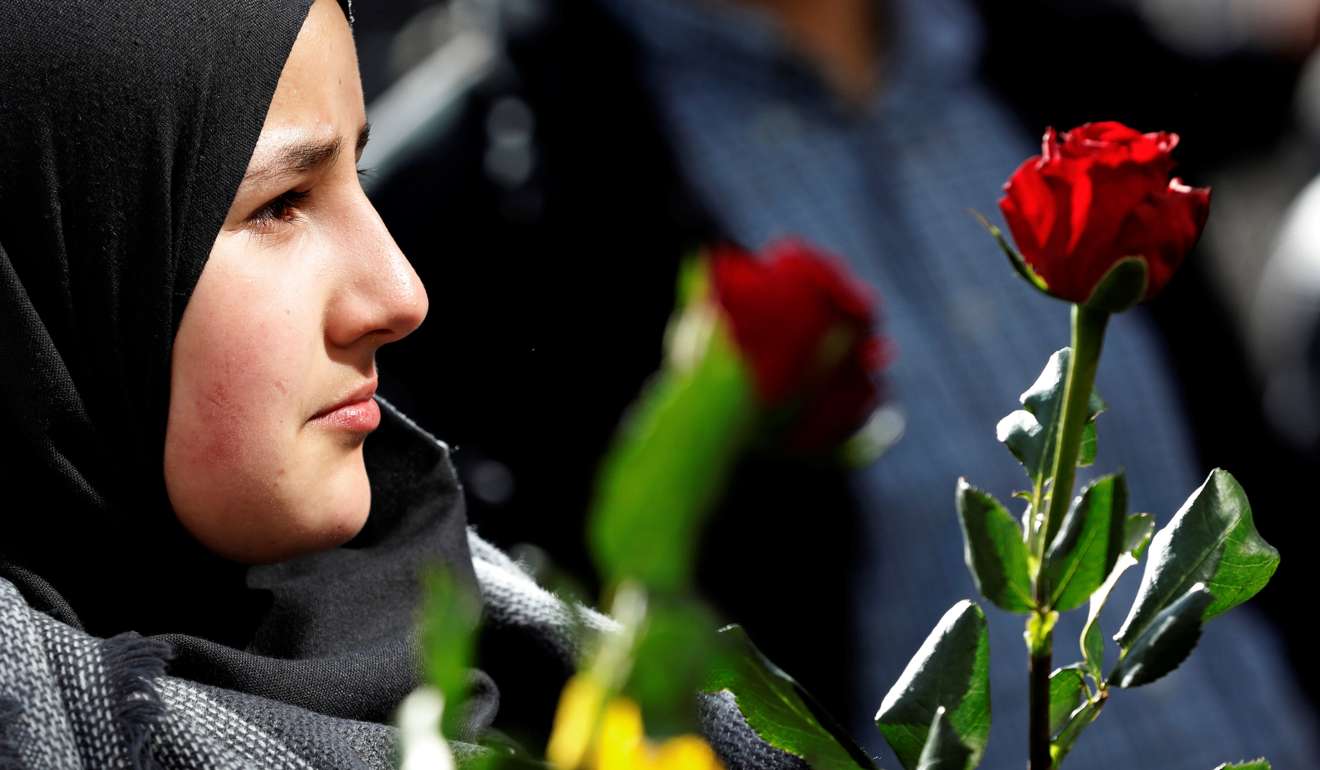
The ceremonies began at exactly 7:58 am (0658 GMT) when suicide bombers Ibrahim El Bakraoui and Najim Laachraoui struck in the departure hall of Zavantem Airport last year, killing 16 people.
With hundreds of people gathered under a clear sky just like that of a year ago, Belgium’s king and queen led a moment’s silence before an airport official read out the names of the dead.
Musician Eddy Van Calster played a rock ballad in tribute to his sister Fabienne Van Steenkiste, a check-in counter agent who was among those killed.
At Maalbeek, there was another moment of quiet at 9:11 am, the time that Ibrahim’s brother Khalid El Bakraoui detonated his bomb on a crowded train and killed another 16 people.
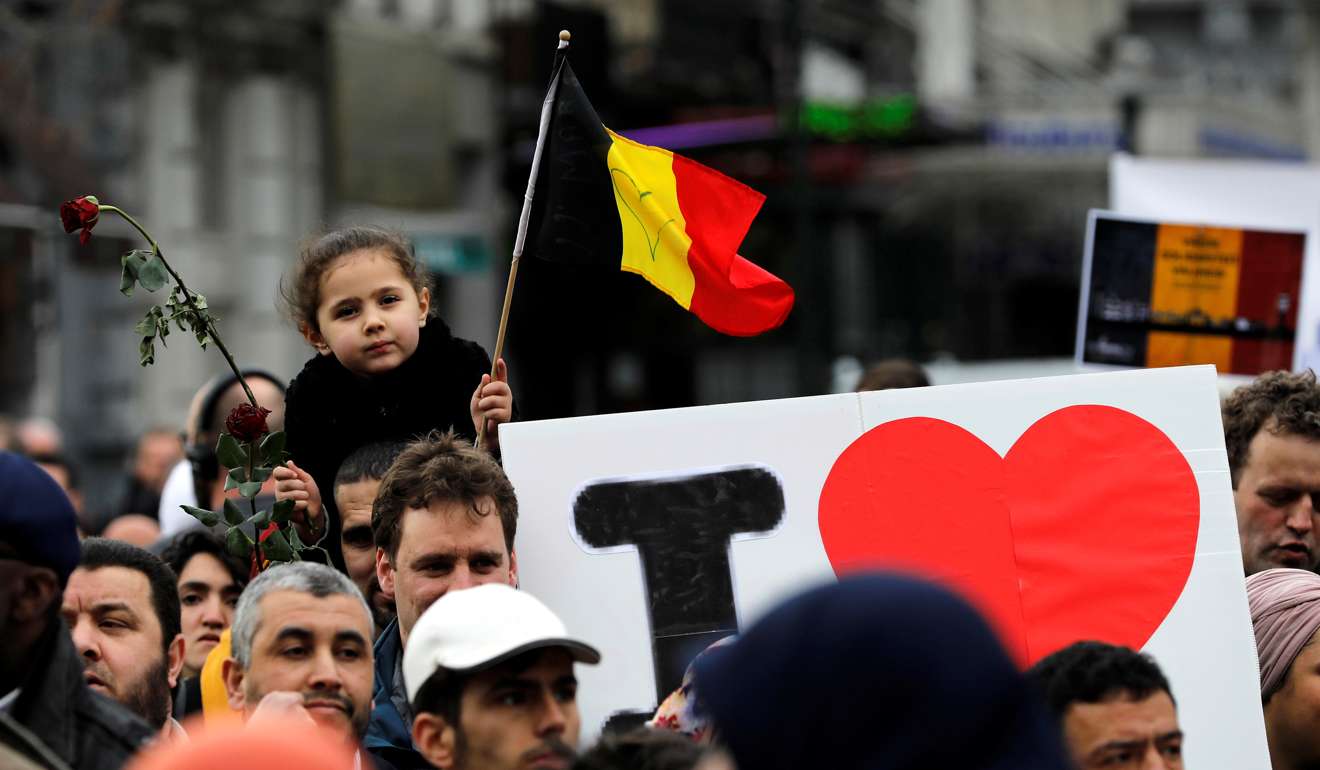
The king laid a wreath before a subway wall scrawled with anguished messages from loved ones and stamped with a red heart.
EU leaders including the bloc’s president Donald Tusk and European Commission chief Jean-Claude Juncker attended the opening of the new memorial to the victims, which consists of two pieces of curved steel punctured with holes to look like shrapnel.
Later, schoolchildren from Molenbeek, the largely Muslim area where many of the attackers hailed from, will meet victims of the attacks in a show of solidarity.
Hundreds of people also joined a peace march through Brussels to the Place de la Bourse, which became an impromptu shrine to the victims last year.
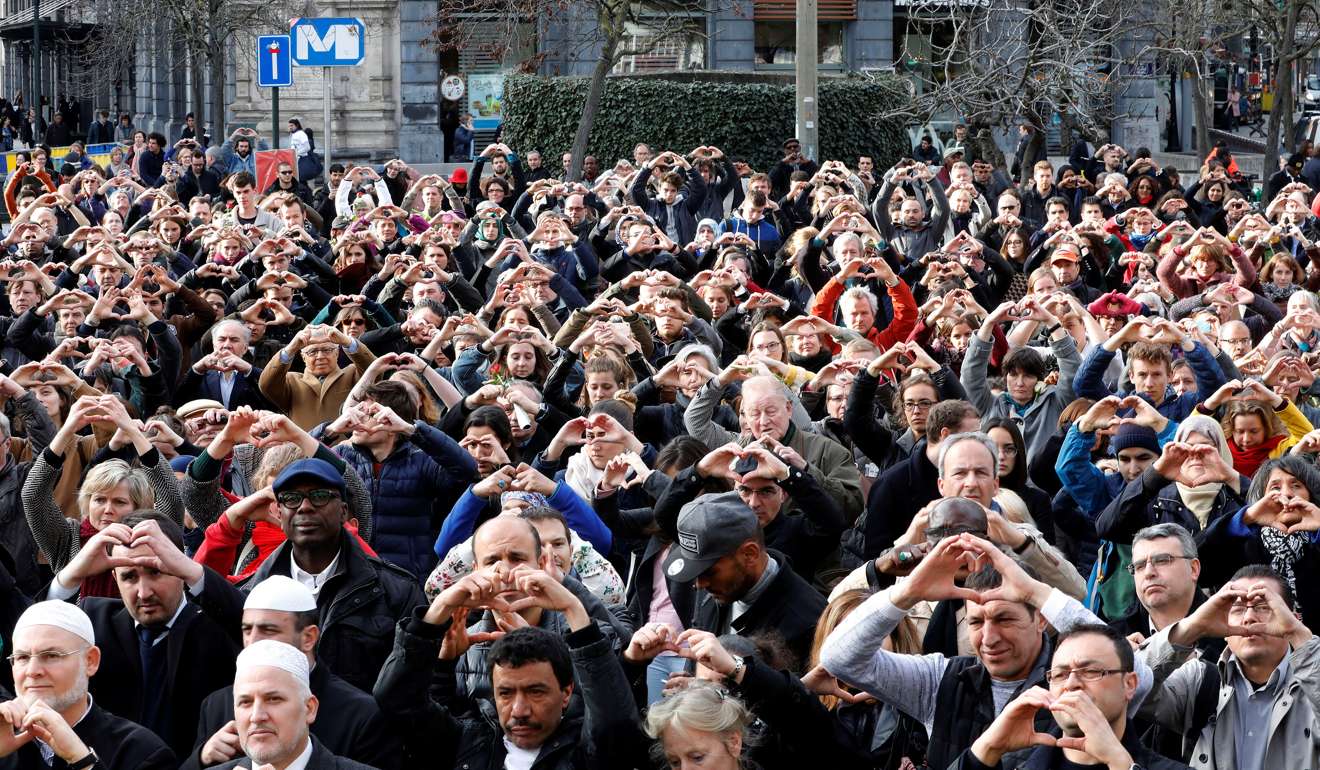
Children with t-shirts saying “#Jihaddamour (Jihad of Love) led the march together with Jewish, Christian and Muslim leaders in religious outfits.
“This shows a positive image of Molenbeek,” said Fatima Zibouh, one of the organisers. “What we wanted above all was a way for people to show their solidarity.”
The city’s most famous landmark -- the Manneken Pis statue of a little boy -- was also dressed up in a fireman’s outfit to hail the efforts of rescue services.
The anniversary comes shortly after Belgium’s government warned of fresh risks from IS jihadists radicalised in Europe or returning home from Iraq and Syria.
Investigators say the network behind the Brussels and Paris blasts acted on orders from the IS high command.
The shock of the attacks was compounded by accusations afterwards that Belgium, which is deeply divided between French and Flemish-speaking communities, had been unable to track down the terror cell.
Victims and their families have meanwhile complained about the difficulties of getting compensation from Belgian authorities.

.png?itok=arIb17P0)